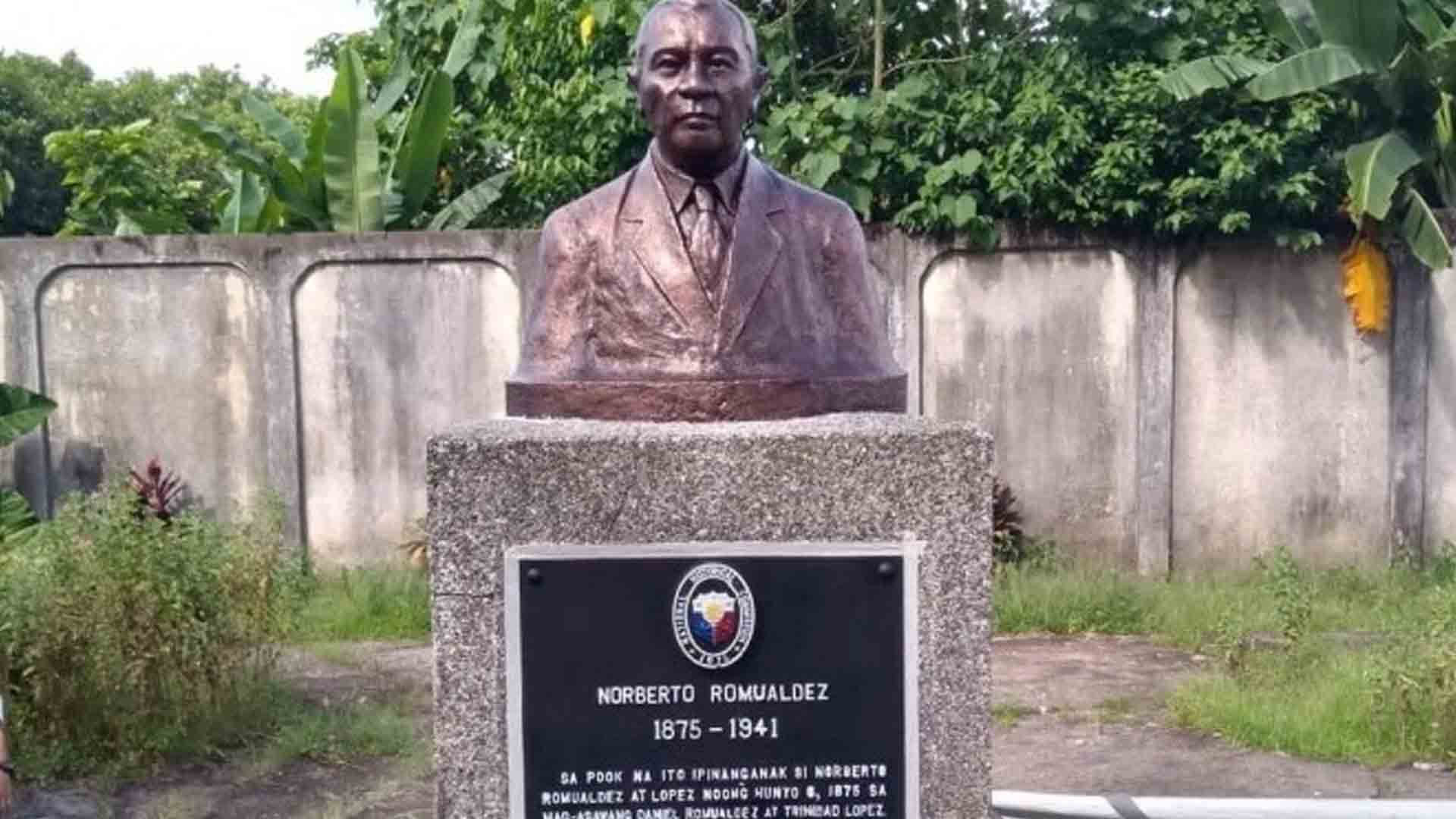The local government unit here has lined up activities to reacquaint the public with “Leyte’s favorite son” Norberto Romualdez, a writer, jurist, and statesman.
Burauen municipal tourism officer Carmela Crebillo said on Thursday that it has been 81 years since the death of Romualdez, the grand-uncle of President Ferdinand “BongBong” Marcos Jr., and the people of Leyte, including those of this town, have seemingly forgotten about him.
“People have been passing by the memorial park, noticing his bust, but people wonder who he is,” Crebillo told the Philippine News Agency (PNA), referring to the marker of Romualdez built across the town’s church by the National Historical Commission of the Philippines (NHCP) in 1975.
She said she is optimistic that with Marcos as the current Chief Executive, more people would show interest in the life of Romualdez as part of heritage tourism.
“During the campaign in Baybay City, then-presidential candidate Bongbong Marcos acknowledged to Mayor Juanito Renomeron that he has relatives in our town. He even told his plan to visit Burauen,” Crebillo added.
On September 27, in time for the celebration of World Tourism Day, the local government will reintroduce Romualdez to the public by staging a zarzuela of one of his plays, titled “An Tugon”.
“We have invited a national artist for music to talk about the works of Norberto. Some of his grandchildren will visit our town to tell his stories and help improve the marker,” Crebillo said.
The local government will push for the inclusion of Norberto’s biography in school lessons by giving magazines about him to teachers.
She noted that some public school teachers just rely on what’s written in the marker to teach local history.
“We will also come up with a sentimental journey tour package in Burauen and Norberto is part of it,” she said.
The NHCP sent a team in May to restore and refurbish his sculpture situated near the town’s Roman Catholic Church, the same spot as their ancestral house in the late 1800s.
Born in Burauen on June 6, 1875, Norberto was the eldest son of Daniel Romualdez and Trinidad Lopez.
His younger brother was Vicente Orestes Lopez Romualdez, the father of the former first lady Imelda Romualdez-Marcos, the President’s mother.
He finished his Bachelor of Arts with honors at the Ateneo Municipal de Manila in 1895 and earned the title of high school teacher at the University of Santo Tomas before the outbreak of the Philippine Revolution, according to an article published by the Kahimyang Project.
Norberto studied law during the American Occupation and passed the Bar in 1903.
Paolo Ay-ay, cultural researcher and documenter assistant of the local tourism office, said the people of Leyte respected Norberto as an educator when he founded the Colegio de San Jose, a school in Tanauan, Leyte with students from various parts of the Visayas.
“We have been contacting authors who have written the stories of Norberto to get more details about his life and tell the story of Leyte’s favorite son to the people,” Ay-ay said.
In 1908, he wrote a Bisayan grammar book intended for American soldiers stationed in Leyte who wanted to learn the local language.
The following year, he founded the Sanghiran san Binisaya ha Samar ug Leyte (Academy of the Visayan Language of Samar and Leyte) for the purpose of promoting and intellectualizing Waray-Waray.
Romualdez was also fluent in other languages, among them Spanish and English, as well as Cebuano.
He was a well-known writer, educator, lawyer, and painter, and was also a delegate to the 1934-1935 Constitutional Convention.
He was one of the “Seven Wise Men” who drafted the 1935 Constitution for the Philippine Commonwealth and also a Philippine Supreme Court associate justice during the American Period.
He died of pneumonia in Palapag, Northern Samar on Nov. 4, 1941, at the age of 66. (PNA)























